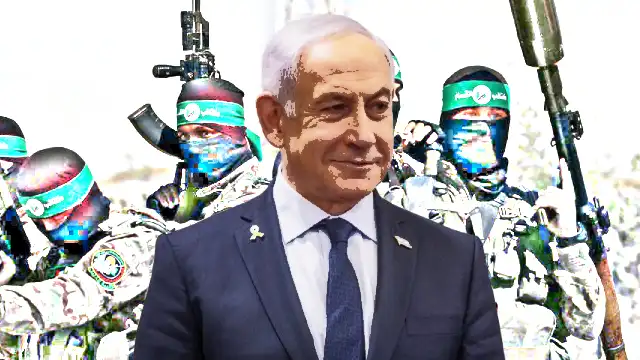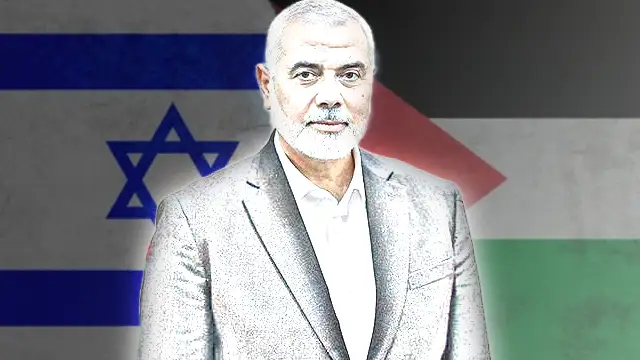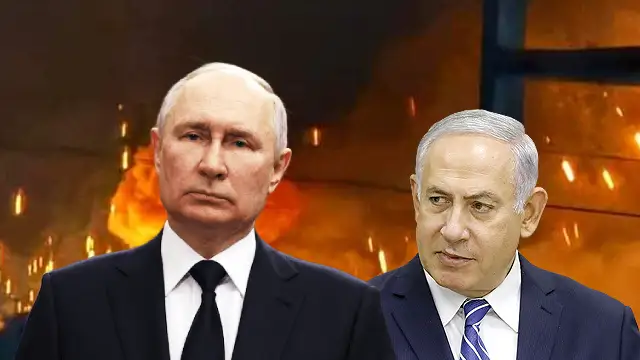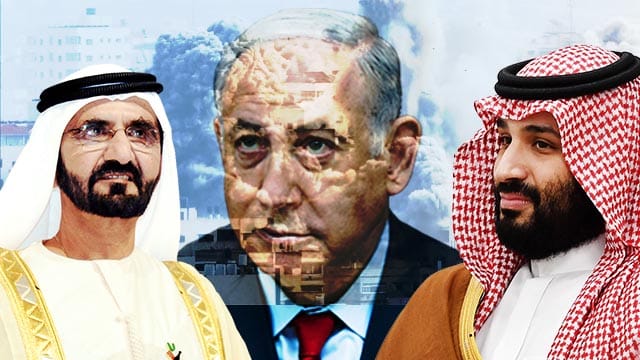Hamas revealed on Wednesday, May 28th, that it has entered into direct negotiations with the United States over a permanent ceasefire in Gaza, marking a dramatic shift in diplomatic dynamics that threatens to further isolate Benjamin Netanyahu‘s increasingly embattled government. The announcement of Hamas-US dialogue represents the most significant breakthrough in efforts to end the devastating conflict that has reduced Gaza to rubble.
The Palestinian resistance organisation confirmed it has reached “an agreement with US envoy Steve Witkoff on a general framework that achieves a permanent ceasefire, a complete withdrawal of occupation forces from the Gaza Strip, the unimpeded flow of aid, and a technocratic committee assuming administration of the Strip’s affairs immediately upon the announcement of the agreement.”
This Hamas-US dialogue occurs while Israel maintains its occupation of 80% of Gaza and continues what Palestinian officials term a campaign of ethnic cleansing.
The framework includes “the release of ten ‘israeli’ captives and a number of bodies, in exchange for the release of an agreed-upon number of Palestinian prisoners, guaranteed by mediators,” Hamas stated.
“The movement is awaiting the final response to this framework,” it added.
Is the Hamas-US dialogue a calculated betrayal of America’s closest ally?
The emergence of Hamas-US dialogue exposes the cynical pragmatism underlying American foreign policy, where principles dissolve when strategic interests demand.
Washington maintains its official designation of Hamas as a terrorist organisation—a label imposed following Israeli pressure—while simultaneously conducting negotiations that legitimise the very movement it claims to oppose.
This contradiction reveals the hollowness of American moral authority in the Middle East.
The same administration that provides Israel with unlimited military support and diplomatic cover now engages in Hamas-US dialogue that directly undermines Israeli objectives.
Such duplicity demonstrates how Washington treats allies as expendable assets rather than genuine partners.
Mr Witkoff’s role as chief negotiator adds another layer of irony to the Hamas-US dialogue.
As a close ally of President Donald Trump, his participation signals a high-level American commitment to outcomes that contradict stated policy.
The talks occur soon after Mr Trump sold American weapons to Israel’s Arab neighbours and promoted plans to relocate Gaza’s population to Egypt and Libya forcibly.
Israeli desperation masked as military victory
The timing of this Hamas-US dialogue coincides suspiciously with Israeli claims of killing Mohammad Sinwar, brother of the late Hamas leader Yahya Sinwar.
Mr Sinwar’s killing, announced by Mr Netanyahu on Wednesday, has again raised a bigger question over whether Israel will budge to the massive public outcry for a ceasefire.
Hamas has not confirmed these reports, suggesting either Israeli propaganda or tactical silence regarding leadership casualties.
Even if genuine, such tactical victories cannot obscure Israel’s strategic failure to achieve its stated objectives.
After 20 months of devastating bombardment that has killed tens of thousands of civilians, Hamas retains sufficient organisational capacity to conduct sophisticated negotiations.
The emergence of Hamas-US dialogue itself demonstrates the movement’s political resilience despite military pressure.
The decimation of Hamas’s military wing, the Al-Qassam Brigades, has indeed forced the organisation toward diplomatic solutions.
However, this tactical adaptation reveals strategic wisdom rather than defeat.
By engaging in Hamas-US dialogue, Palestinian resistance demonstrates flexibility that contrasts sharply with Israeli rigidity.
Mr Netanyahu’s government faces the humiliating reality that its military campaign has strengthened rather than weakened Hamas’s political position.
The organisation now commands international attention and direct access to American policymakers—outcomes that would have seemed impossible before October 7th.
European allies abandon the Zionist project
The Hamas-US dialogue unfolds against a backdrop of accelerating European disengagement from unconditional Israeli support.
Spain’s parliament has passed motions against weapon sales to Israel, while Ireland, Norway, Spain and Slovenia jointly declared that the upcoming Palestine conference “is the appropriate framework in which to finally advance the implementation of the two-State solution.”
“We remind that recognition is another step for the implementation of the two-state solution, and we call on all members of the international community to take the necessary steps to make it reality,” their statement reads.
This European coordination represents a decisive break with American-Israeli preferences.
What has compelled even countries like the UK or France to take a critical stance on Mr Netanyahu’s Gaza aggression is the growing pro-Palestine movements, pro-Gaza movements across these countries, which continue to threaten the electoral outcomes for the rulers.
The Hamas-US dialogue emerges precisely as Israel loses its traditional European support base.
These governments no longer accept Israeli narratives about defensive warfare while witnessing the systematic destruction of civilian infrastructure in Gaza.
European populations increasingly view Israel as a rogue state engaged in genocidal policies.
Such developments place enormous pressure on Washington to distance itself from Israeli extremism. The Hamas-US dialogue provides a convenient mechanism for American officials to demonstrate independence from Netanyahu’s government while maintaining plausible deniability about policy reversals.
Historical patterns of Palestinian pragmatism
Hamas’s current outreach through Hamas-US dialogue continues a long pattern of Palestinian accommodation to Western demands.
The organisation has previously attempted engagement with European capitals through Egyptian and Qatari mediation, demonstrating a consistent willingness to pursue diplomatic solutions.
This historical context exposes the fraudulent nature of Israeli claims about Palestinian rejectionism.
Hamas has repeatedly signalled readiness for negotiated settlements that recognise Israeli security concerns while ensuring Palestinian national rights.
Israeli governments have consistently rejected such overtures in favour of military solutions.
The organisation even filed petitions in British courts to overturn terrorist designations before initiating the current Hamas-US dialogue.
Such legal challenges demonstrate a sophisticated understanding of Western political systems and a genuine commitment to diplomatic engagement.
These efforts contrast sharply with Israeli behaviour during the same period.
Mr Netanyahu’s government has systematically undermined every peace initiative while expanding illegal settlements and intensifying military occupation.
The current Hamas-US dialogue occurs despite, not because of, Israeli actions.
Netanyahu’s genocidal endgame
While Hamas pursues diplomatic solutions through Hamas-US dialogue, Mr Netanyahu’s government continues implementing plans for permanent Palestinian expulsion from Gaza.
These objectives align perfectly with Mr Trump’s proposals to relocate Gaza’s population to Egypt and Libya—a scheme that constitutes textbook ethnic cleansing under international law.
Mr Netanyahu’s persistence with these plans despite growing international opposition reveals the genocidal nature of Israeli objectives.
Military operations continue not to eliminate Hamas but to render Gaza uninhabitable for Palestinian civilians.
The current Hamas-US dialogue threatens these plans by legitimising Palestinian political representation.
Israeli officials calculate that a successful Hamas-US dialogue would strengthen Palestinian claims to sovereignty while undermining justifications for continued military occupation.
This explains Netanyahu’s desperate attempts to sabotage negotiations through escalatory military actions and inflammatory rhetoric.
The prime minister’s political survival depends upon maintaining perpetual conflict that justifies emergency powers and postpones domestic accountability. A successful Hamas-US dialogue would eliminate pretexts for continued warfare while exposing the criminal nature of Israeli policies in Gaza.
Strategic implications of Hamas-US dialogue, diplomatic realignment
The emergence of Hamas-US dialogue signals fundamental shifts in Middle Eastern power dynamics that extend far beyond Gaza.
Palestinian resistance has successfully internationalised its struggle while forcing recognition from the global hegemon that dismissed its legitimacy for decades.
This diplomatic breakthrough occurs as American credibility deteriorates throughout the Global South.
Washington’s selective application of international law and human rights principles has undermined its moral authority amongst developing nations.
The Hamas-US dialogue provides an opportunity for tactical repositioning without fundamental policy changes.
However, Hamas retains realistic expectations about American reliability.
The organisation recognises that successful negotiations require sustained pressure rather than naive trust in Washington’s good faith.
Recent history demonstrates the American willingness to abandon commitments when convenient for domestic political calculations.
The current Hamas-US dialogue may therefore represent tactical breathing space rather than strategic resolution. Hamas can utilise negotiations to rebuild organisational capacity while maintaining international attention on Palestinian suffering. Such calculated engagement demonstrates political maturation under extreme duress.
If Hamas succeeds in securing meaningful concessions through diplomatic channels, it will establish precedents that strengthen Palestinian negotiating positions in future conflicts.
The organisation’s survival and continued relevance through Hamas-US dialogue would constitute victory against overwhelming military odds—a testament to the enduring power of popular resistance against colonial oppression.
Join our channels on Telegram and WhatsApp to receive geopolitical updates, videos and more.







